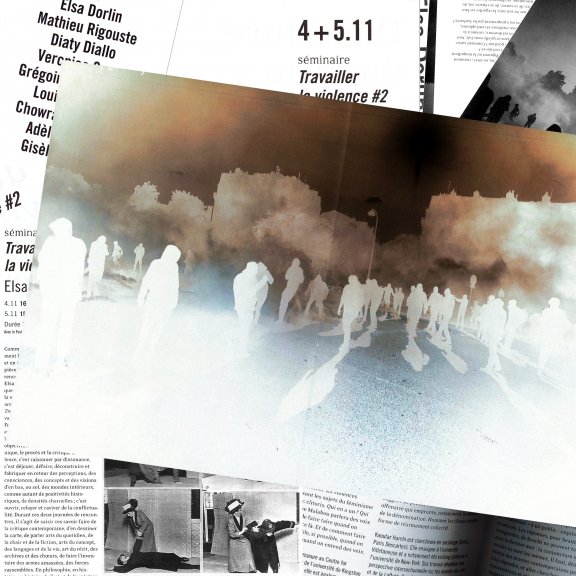4 & 5.11.22
CN D à Pantin
How do you work with violence? How can it be put into perspective, staged and narrated? How can it be dismantled? Philosopher Elsa Dorlin will address these questions during this two-day event and map out what critics have said about violence and which tools are at our disposal in that conversation. Working with violence #2 continues the work that started in 2021 in the CN D with the Festival d’Automne to interrogate what has been written about violence and its objectivation. Analyzing, chronicling, critiquing and trying violence means experiencing a dissonant reasoning, subverting, deconstructing and undoing perceptions to build new ones, a new awareness, new concepts and visions of interior worlds and their historical depth and carnal density; it means opening and reawakening conflict. During these two days, we will work with the critical output of contemporary writing on violence, map them out, and talk about daily artistic practices, the flesh of fiction, conceptual arts, languages and life, the art of narration, of archiving, as well as collective practices and how people come together when faced with violence. What can philosophical, historical, artistic, literary and sociological critiques of violence teach us?
Elsa Dorlin is a professor of contemporary political philosophy at the University of Toulouse Jean Jaurès, and she has been working for over twenty years on writing another history of bodies through a genealogy of modern power dynamics. She was awarded the bronze medal from the CNRS in 2009 for her research on feminist philosophy and epistemology. She was a visiting professor in Berkeley University in 2010-2011, a Fellow in the Columbia Institute for Ideas & Imagination in 2018-2019, and a resident in the Camargo Foundation (2020-2021). She is the author of La Matrice de la race. Généalogie sexuelle et coloniale de la Nation française, Paris, La Découverte, 2006/2009, and Sexe, genre et sexualités. Introduction à la philosophie féministe, Paris, Puf, 2008/2021. She published Se Défendre. Une philosophie de la violence in 2017 (originally published by Zones editions and translated in several languages), which was awarded the Frantz Fanon Prize from the Caribbean Philosophical Association. She recently directed Feu ! Abécédaire des féminismes présents, Paris, Libertalia, 2021. Continuing her reflection on the complexity of processes like domination, sexism, racism and capitalism, she focuses on physical resistance – the ways in which bodies resist in their flesh, in their bones and in their senses.
